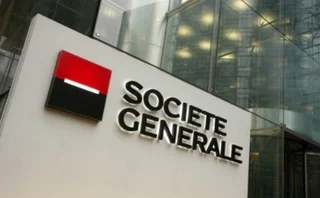
State aid for ABS market may hinder recovery – IMF
The IMF has stressed the importance of a recovery in the securitisation market, but warns that some of the state interventions in the market over the past year may be counterproductive.
In its latest Global Financial Stability Report, the IMF says securitisation is vital to a healthy lending market and regulators and central banks have the right objectives in mind: to clear away unreliable ‘legacy’ securitised products and restart the private-sector securitisation business on firmer foundations.
However, some of the short-term efforts to keep the financial markets liquid, introduced at the height of the crisis last year, may undermine the longer-term goal of a restored and reformed securitisation industry.
One objective is to lessen reliance on rating agencies, the IMF says, but “the longstanding use of credit ratings to screen eligible collateral for various central bank liquidity backstop facilities is viewed as encouraging rating shopping.”
It adds: “Evidence is accumulating that rating shopping was rampant during the period leading up to the crisis.”
Other regulators tend to rely on credit ratings – for example, in restricting the holdings of pension funds – although the IMF acknowledges efforts by the US government to reduce regulatory dependence on ratings.
Changes to the Basel II capital adequacy rules, while necessary, will also make securitisation more costly by increasing the risk weighting for various classes of asset.
“The interaction of these changes with new accounting standards and proposed retention regimes makes their impact on securitisations uncertain,” the IMF says. It speculates one outcome may be a growth in securitisation by entities such as hedge funds that are outside regulators’ reach.
Regulators have also been pushing for issuers to retain a stake in any securitised products they produce but this will not always work, the IMF warns. In a recessionary environment with generally low underlying loan quality, the equity tranche is almost bound to be wiped out; forcing issuers to hold an equity stake gives them no incentive to improve due diligence.
Only users who have a paid subscription or are part of a corporate subscription are able to print or copy content.
To access these options, along with all other subscription benefits, please contact info@risk.net or view our subscription options here: http://subscriptions.risk.net/subscribe
You are currently unable to print this content. Please contact info@risk.net to find out more.
You are currently unable to copy this content. Please contact info@risk.net to find out more.
Copyright Infopro Digital Limited. All rights reserved.
As outlined in our terms and conditions, https://www.infopro-digital.com/terms-and-conditions/subscriptions/ (point 2.4), printing is limited to a single copy.
If you would like to purchase additional rights please email info@risk.net
Copyright Infopro Digital Limited. All rights reserved.
You may share this content using our article tools. As outlined in our terms and conditions, https://www.infopro-digital.com/terms-and-conditions/subscriptions/ (clause 2.4), an Authorised User may only make one copy of the materials for their own personal use. You must also comply with the restrictions in clause 2.5.
If you would like to purchase additional rights please email info@risk.net
More on Securitisation
Global banks look for profits in China ABS market
Regulatory change provides opportunity for international firms' structuring skills
Credit fears hold back US solar securitisation deals
SolarCity deals show potential and pitfalls of new asset class
Collateral damage: Capital proposals threaten Europe's ABS market
Insecuritisation
Securitisation touted as answer to '€4 trillion' funding gap
Securitisation industry group claims Europe faces big financing shortfall – and pushes securitisation as the answer
SG plans to securitise €1.9 billion of derivatives exposure
Deal is said to pay a coupon of 11% for first-loss protection – which some investors say is too low
"Deceptive and negligent": How the first CPDO got its AAA rating
An extraordinary Australian court judgement shines a light on the errors and deceit that led to the granting of an AAA rating to ABN Amro’s Surf constant proportion debt obligation in 2006. Lukas Becker reports
Dutch counsel confident of success as S&P faces new CPDO case
The fine handed out by an Australian court last year to ABN Amro and Standard & Poor’s was a rare success for post-crisis litigants in structured credit cases. The victors are hoping to repeat the trick in Europe – but what are their chances? Lukas…






